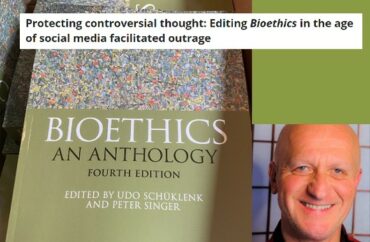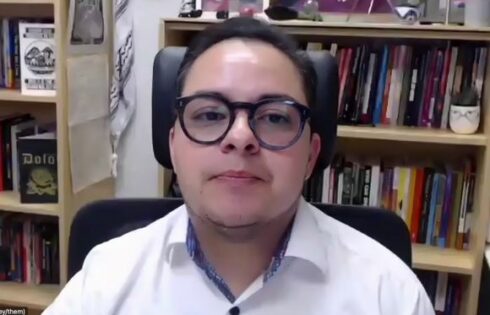
OPINION: ‘Behaviour is … antithetical to what academic freedom is all about’
Editors of the academic journal Bioethics just sent a strong message to the online “outrage machine” that tries to cancel scholars with unpopular opinions: Stop the mudslinging.
There is a better way to advance academic knowledge, and it’s open, free debate. Not silencing others, Editor in Chief Udo Schuklenk (pictured) wrote in a recent editorial.
It’s refreshing and encouraging to see the editorial board take such a stance – especially after other journals have caved to the pressure and pulled pro-life scholars’ papers.
Schuklenk wrote the piece in response to the “social media facilitated outrage” that has led to calls for academic papers to be retracted and editors to resign.
“What puzzles me about this behaviour is that it is antithetical to what academic freedom is all about,” Schuklenk wrote on behalf of the editorial board.
A philosophy professor at Queen’s University in Canada, he said “diversity of thought” is vital to academia, especially the field of bioethics. And that means publishing papers that even the editors may personally disagree with.
His editorial mentioned online attacks against pro-life scholars several times.
Schuklenk let his political views show when he referred to these scholars as “antichoice,” but he defended their academic freedom nonetheless.
“In this journal, we have published during the last few years a fair number of papers by a small group of—arguably—activist antichoice academic writers,” he wrote.
But “prochoice academic social media activists lambasted the journal for publishing such content,” even though the papers passed the standard peer review process, he said. The journal also has at least two reviewers from each side of an issue examine papers before publishing, he said.
That didn’t satisfy the outrage mob, however. Schuklenk wrote:
“Peer review or not, such offending content should not be published. Suspicions of us Editors’ motives were raised, were we perhaps secret supporters of a Handmaid’s Tale type society? Also, of course, questions about the quality of the journal and its review processes appeared. How could we publish such obviously flawed papers? The operating principle seemed to be to throw mud against the journal, its Editors and its reviewers and hope that something sticks. Those concerns strangely never seem to arise vis a vis content these same academic social media activists find agreeable.”
The Bioethics editors didn’t give in. But the same cannot be said for other journals.
As The College Fix reported earlier this year, editors at The New Bioethics reversed course and rejected an article about abortion that it initially accepted following complaints by a reader on X. The editors cited concerns about the scholar being a “white” “male.”
Just a few months earlier, Sage Journals retracted three abortion studies by a group of well-known pro-life scholars, including a former faculty member of Johns Hopkins School of Hygiene and Public Health.
But at Bioethics, Schuklenk said the editorial board is committed to “protecting controversial thought,” including “views some readers may find offensive.”
When controversial ideas get published and gain attention, it can be a good thing because it presents an opportunity for views to be tested “in an academically rigorous way,” he wrote.
The online cancel culture is “antithetical to what academic freedom is all about,” Schuklenk wrote.
Academia needs more editors like those at Bioethics who are willing to stand up to the outrage mob and defend academic freedom.
MORE: Journal rejects ‘white’ ‘male’ author’s pro-life article
IMAGE: Bioethics journal, Udo Schuklenk/X
Like The College Fix on Facebook / Follow us on Twitter







Please join the conversation about our stories on Facebook, Twitter, Instagram, Reddit, MeWe, Rumble, Gab, Minds and Gettr.